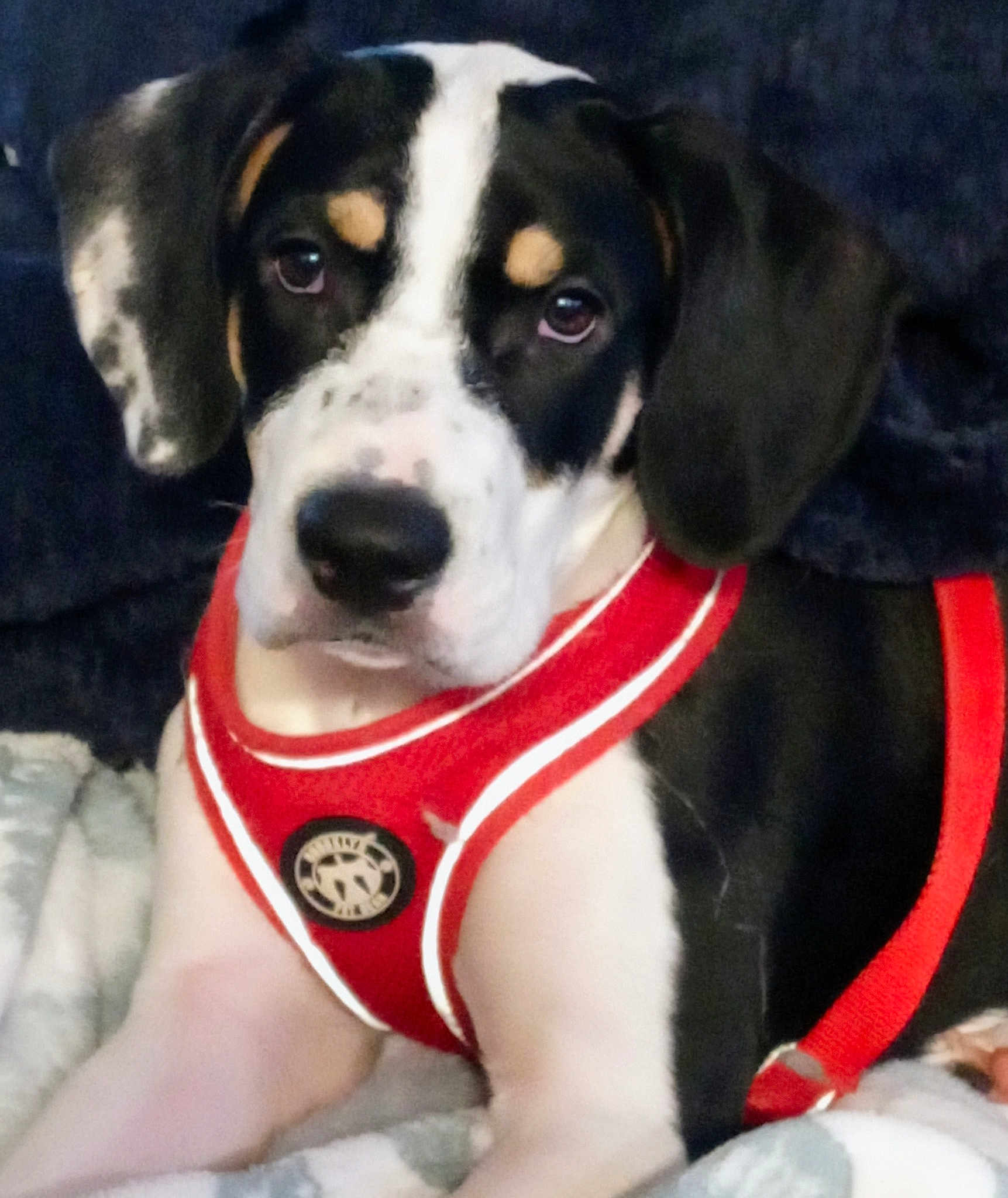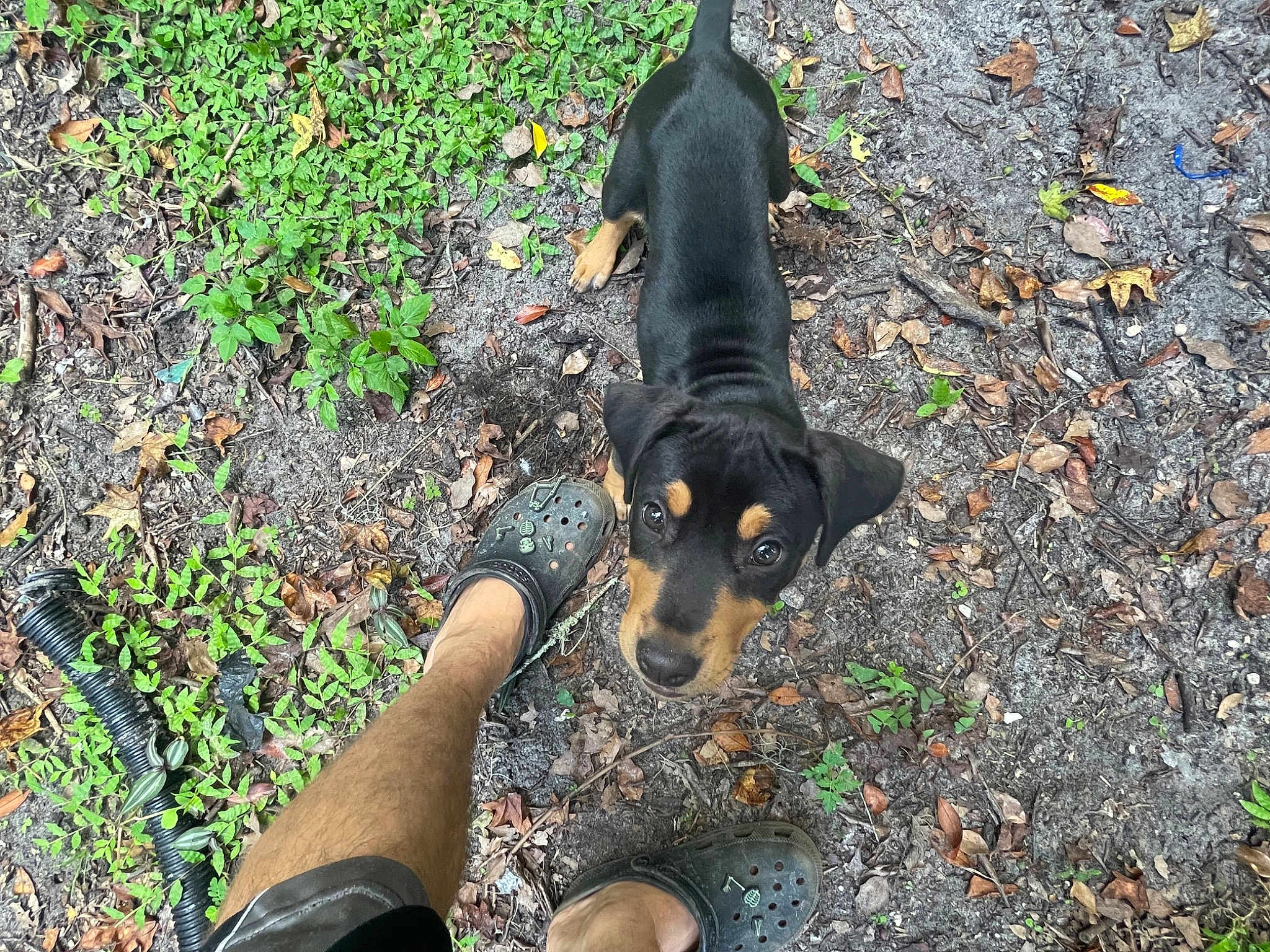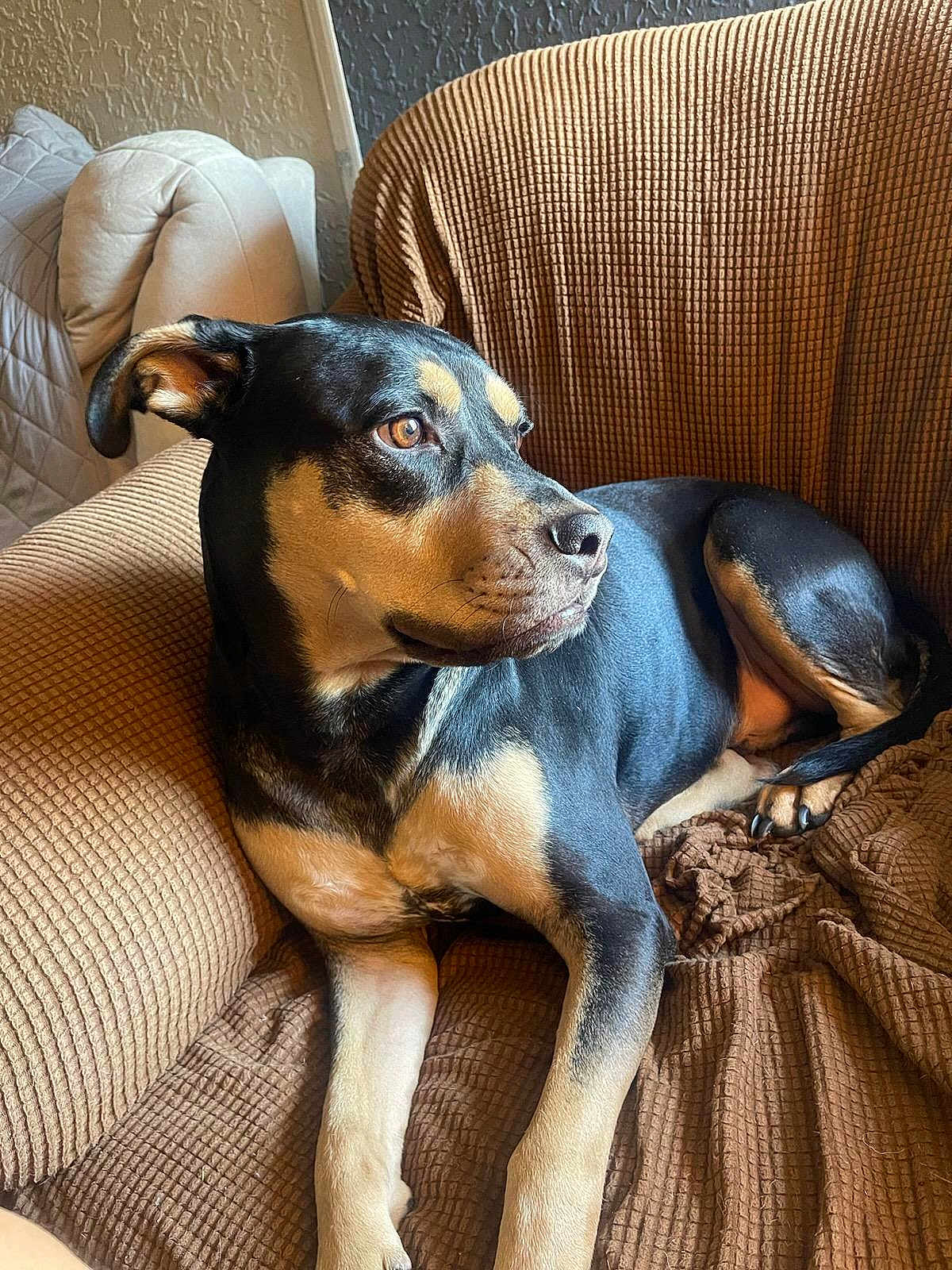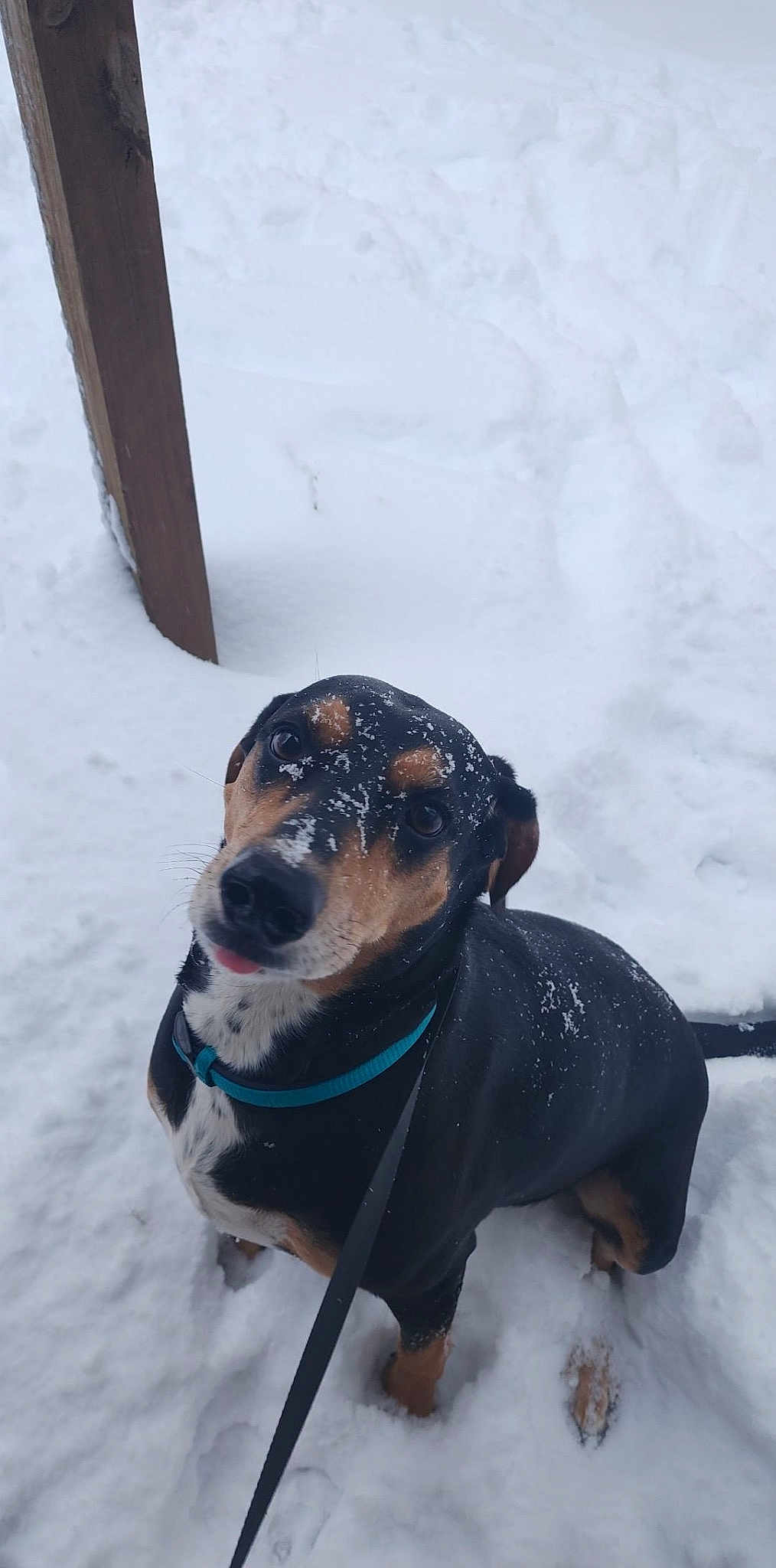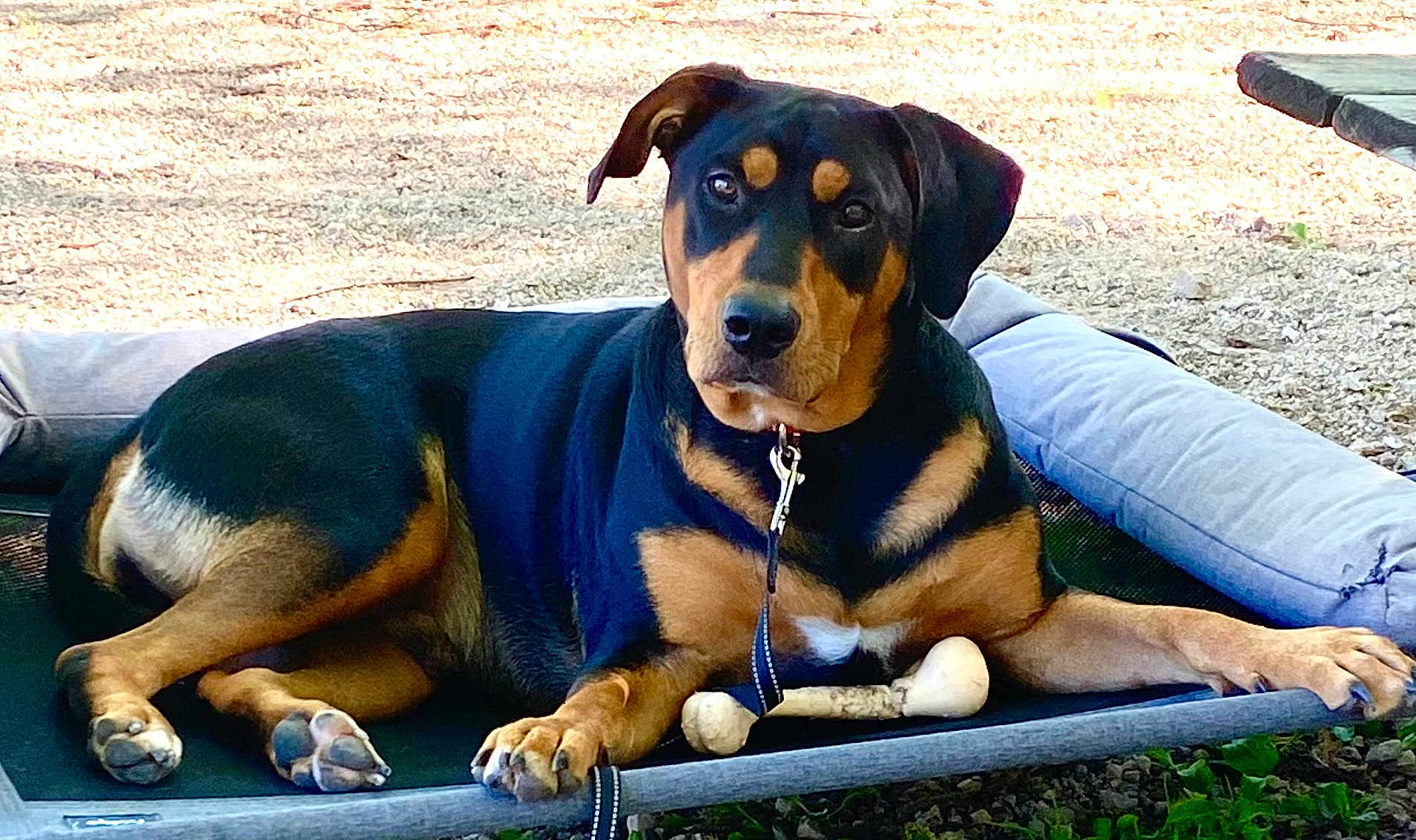"Among the dogs that roamed the forests of Eastern Europe, few can match the historical depth and versatility of the Transylvanian Hound. This dog, known for its loyalty and remarkable tracking ability, opens a window into the rich tapestry of dog breeds from around the globe."
Personality and Behavior of the Transylvanian Hound
The Transylvanian Hound is a picture of resolve and intelligence, revered for its hunting prowess and adaptability. Often described by aficionados as a "true working dog," this breed excels in both stamina and determination. One of the key traits that Transylvanian Hounds possess is their incredible energy. They're prolific hunters, and this is evident in their high activity levels. If left without adequate exercise or stimulation, they may channel their energies into less desirable behaviors out of sheer boredom.
Another commendable personality trait is their loyalty. Transylvanian Hounds are known to form deep bonds with their families, showing a level of devotion that can be heartwarming. Their affectionate nature makes them excellent companions, but their independent streak means they also appreciate some time to themselves. These dogs are also reputed to be quite vocal, often using their bark to communicate or alert their owners to potential intruders.
In terms of sociability, the Transylvanian Hound generally gets along well with other dogs, particularly if socialized from a young age. However, their hunting background can sometimes make interactions with smaller pets like cats a bit more challenging. It’s crucial to introduce these dogs to a wide array of experiences and environments early in their lives to ensure they develop into well-rounded adults.
"The Transylvanian Hound, descended from ancient hunting dogs of Europe, stands out as a breed with unwavering focus and resilience, traits that are both awe-inspiring and demanding."
Meanings, History and Origins of the name Transylvanian Hound
The name "Transylvanian Hound" provides a direct link to the region of Transylvania in Romania, a land steeped in folklore and history. This breed’s presence in Transylvania dates back several centuries, where it was primarily utilized for hunting a variety of game, from small quarry to larger prey like wild boar. The origins of the breed are believed to be a mix of various hound breeds brought into Europe by invading armies and migratory tribes, which over time adapted to the mountainous and forested terrains of Transylvania.
Transylvanian Hounds were prized by nobility and peasants alike for their versatility and remarkable tracking abilities. They were adept at working in challenging environments and weather conditions, which made them indispensable for hunters. The breed's name encapsulates this historical significance and geographical origin, reflecting a legacy of utility and companionship.
Moreover, the breed has two varieties based on size: the long-legged and the short-legged Transylvanian Hound. Each variant had a specific use depending on the type of game being hunted and the terrain. The long-legged variant is more suited to open fields and larger game, while the short-legged specializes in hunting in dense forests and rough terrains.
Popularity of the Transylvanian Hound
The Transylvanian Hound, while not a mainstream breed, enjoys a dedicated following among dog enthusiasts worldwide. Known for its unique history and capabilities, the breed remains relatively rare outside its native region. However, its allure has gradually started to seep through to other parts of the world, including North America.
In English-speaking countries, the Transylvanian Hound is still gaining recognition. The breed has been registered with various kennel clubs and is often highlighted in dog shows, where its striking appearance and excellent hunting skills are showcased. Though not as popular as more common breeds like Labradors or German Shepherds, the Transylvanian Hound's allure lies in its rarity and deep roots in European history.
In other parts of the world, particularly in Europe, the Transylvanian Hound holds a more prominent position. Romania and neighboring countries have a richer tradition of maintaining and showcasing these hounds, often celebrating their historical and working dog status. This regional stronghold has helped preserve the breed’s authenticity and has played a significant role in its resurgence.
Health and Care of the Transylvanian Hound
Like many breeds with a demanding physical role, the Transylvanian Hound is generally robust but can be prone to certain health issues. One of the most common concerns in this breed is hip dysplasia, a genetic condition that affects the hip joint. Regular check-ups and a proper diet can help manage this issue, ensuring that your hound remains active and pain-free.
Another concern is bloat, or gastric torsion, which is more common in deep-chested breeds. This condition can be life-threatening and requires immediate veterinary attention. Feeding your Transylvanian Hound smaller, more frequent meals rather than one large meal can help prevent this serious problem.
Proper dental care is also essential for this breed. Due to their active and often rugged lifestyle, their teeth can wear down quickly. Regular brushing and dental check-ups will aid in maintaining their oral health. Additionally, these dogs thrive on high-quality, balanced diets that meet their energy needs without leading to obesity.
Grooming a Transylvanian Hound is relatively hassle-free. Their short, dense coat needs minimal maintenance, usually requiring just a weekly brush to remove dead hair and dirt. Given their active nature, bathing should be done on an as-needed basis, focusing on keeping their ears clean and nails trimmed to prevent discomfort or infections.
Training and Education of the Transylvanian Hound
Training a Transylvanian Hound can be a rewarding yet challenging endeavor, reflecting the breed’s intelligence and independence. Early socialization and training are crucial to help them develop into well-behaved adults. Positive reinforcement techniques work best with this breed, as they respond well to praise, treats, and consistent commands.
One of the main challenges in training a Transylvanian Hound is their strong prey drive, a trait inherited from their hunting ancestors. This instinct can sometimes lead them to chase small animals or follow scents, making recall training particularly important. Ensuring they understand basic commands like "sit," "stay," and "come" will establish a foundation for more advanced training.
Mental stimulation is just as important as physical exercise for these intelligent dogs. Engaging them with puzzle toys, training sessions, and scent-tracking games can keep their minds sharp and prevent boredom. Given their working dog background, they excel in activities like agility and obedience competitions, which also solidify the bond between the dog and the owner.
Consistency and patience are key when training a Transylvanian Hound. These dogs can be stubborn at times, but a calm and firm approach will yield the best results. Remember, the goal is to harness their intelligence and energy in positive ways, reinforcing their natural abilities while curbing any undesirable behaviors.
Choosing the right dog breed involves understanding both the needs of the breed and your personal lifestyle. Factors such as living space, activity level, and the presence of other pets or children should all be considered.
In conclusion, the enduring appeal of dog breeds lies in their diverse qualities and companionship. At KingPet, we celebrate the unique traits that make each breed special, and the Transylvanian Hound is no exception. Participating in our photo contests, many Transylvanian Hounds have showcased their elegance and charm, winning the hearts of judges and audiences alike. For those seeking a loyal, energetic, and historical breed, the Transylvanian Hound stands out as an exceptional choice.



